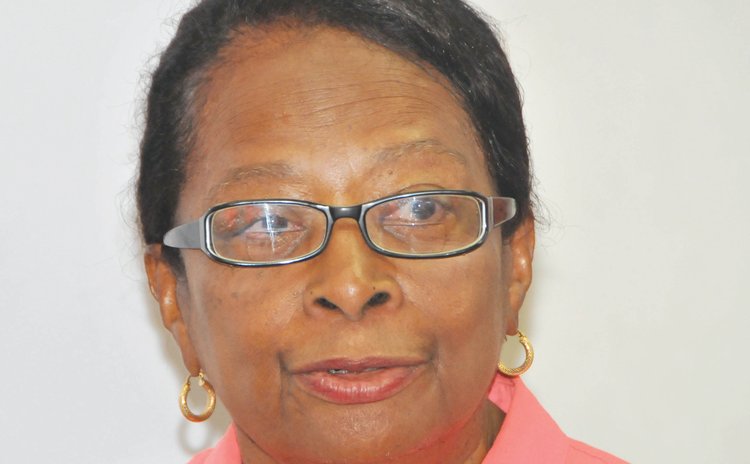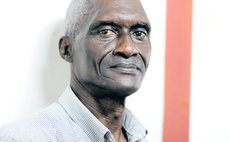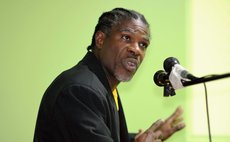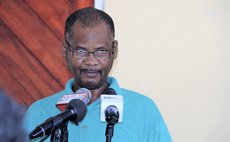Lessons from Maria

Noah was a good man, a man of integrity among his contemporaries, and he walked with God (Gen. 6:9-10). According to the Biblical narrative, he received detailed instructions from God on how he should construct an ark and who should be allowed in that ark which would shelter him and all within, while a flood lasting 40 days would destroy the rest of the earth.
We read further, "Noah did all that God commanded him to do."
Some years ago, following a severe earthquake in the Pacific region, resulting in a tsunami which killed thousands, National Geographical magazine published a story which fascinated me. The story was about a small village on an island in the Pacific where miraculously everyone had survived, unlike what occurred in surrounding villages were the death toll was very high after the earthquake and the tsunami. The story continued that in the village people were known for the respect given to the elderly and for the reverence paid to tradition and history, much of which was passed on orally from one generation to the next.
Among the stories handed down was one of a massive earthquake, followed by a burst of the sea wall into the village which had drowned almost everyone. The few survivors handed down the story and advised that if ever there was a strong earthquake, everyone should take shelter in the hills. That was the reason given by National Geographical for the miraculous survival-the inhabitants made for the hills right after the earthquake, to escape the water.
When I read the story I thought immediately of the one of Noah, and I noted some similarities. Noah "listened" and "obeyed". He was concerned about his family, the animals and the environment. We can add that he was a master boat builder, he knew his craft, was aware of the materials needed to build the ark sturdy enough to protect him and his family. He opened his mind and heart to the divine within him. The villagers of that Pacific island also listened. Their respects for the elderly caused them to listen to their stories and to follow their advice.
What about us today in the wake of "Maria". A few thousand years from Noah, but fewer than thirty years from the events in the Pacific? Are we willing, not only to listen, but to obey? In spite of warnings, will we continue to construct houses near rivers and other bodies of water, which since Tropical Storm Erika have become aware of their terrifying destructive power? And what about our merchants and importers of building materials? Will they act with integrity?
Many of us can't tell the difference between galvanize sheets of varying gauges. So, can we trust our merchants to act responsibly and ethically and in the best interest of the buyers? Will Government play its part by enforcing regulations re importation of building materials and their prices?
As far as lessons learned re our individual and personal lives; the furniture; bed linen; rugs; clothes; books and other discarded items currently "decorating" our sidewalks and street corners, even trees, teach us that these items "can go". They are not essential for life. Comments heard frequently are "At least I am alive, and I thank God for life".
As we continue to throw out items destroyed by Maria, we realise how little we really need. This does not mean that we should not go beyond basic material needs that we should not try to aim for a level where, through our hard work, we can enjoy certain comforts and pleasures.
Our attitude towards material things and their acquisition is so crucial, however, to our acceptance of events in life, like a "Maria". Both Erika and Maria have showed us how easily our "accumulations" can come tumbling down, can be blown or washed away. Admittedly the loss of items like family albums and cherished books caused a measure of regret that we did not secure them before the storm.
Our ancestors used to observe the tradition of taking down all pictures from partitions, of covering large mirrors and of boarding up windows at the start of the hurricane season.
Today we have the technology to warn us when storms are approaching. So even if some of our preparations may prove futile, we can attempt to secure our important documents and other valuable items.
Our advanced technological devices enable those who can use them to communicate with others almost immediately after a disaster, and so, a day after "Maria" help began arriving.
We cannot close our minds to the knowledge and use of technology, though we must not make it our "God". It is the use of technology which allowed the Social Security Department to be able to issue payments on schedule; which allowed Credit Unions and banks to open business. It is the use of technology, as well as several overtime hours, which will enable the treasury staff to work out the retroactive payments for civil servants and others, payments which will enable recipients to have a brighter Christmas.
As we move forward, let us be appreciative of all the various workers who continue to make life easier for us each day. A special "thank you" to the guards at the banks and the Credit Unions who ensure that the "senior citizens" are not left outside for too long braving the heat or rain. Let us act responsibly, charitably, looking out for one another.
Whether we see ourselves as having escaped to the "hills" as the Pacific villagers did, or as finding refuge in "Noah's Ark", we are all "in the same boat' on our island. With God's help and guidance, we will rebuild it.
Dorothy Leevy.




